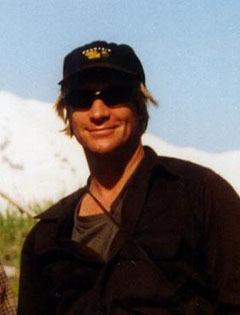A Quote by Robert Winston
You can now modify the genes of large animals, and the largest animal we are concerned with is the human.
Related Quotes
It must be stressed that there is nothing insulting about looking at people as animals. We are animals, after all. Homo sapiens is a species of primate, a biological phenomenon dominated by biological rules, like any other species. Human nature is no more than one particular kind of animal nature. Agreed, the human species is an extraordinary animal; but all other species are also extraordinary animals, each in their own way, and the scientific man-watcher can bring many fresh insights to the study of human affairs if he can retain this basic attitude of evolutionary humility.
A large animal needs a large area. If you protect that area, you're also protecting thousands of other plants and animals. You're saving all these species that future generations will want - you're saving the world for your children and your children's children. . . . The destruction of species is final. If you lose a species, you lose the genes, you lose all the potential drugs and potential foods that could be useful to the next generations. The ecosystems will not function as they have.
Christian theology provides some of the best arguments for respecting animal life and for taking seriously animals as partners with us within God's creation. It may be ironical that this tradition, once thought of as the bastion of human moral exclusivity, should now be seen as the seed-bed for a creative understanding of animal liberation.
I am still passionate about Grizzly bears as well as the rest of the animal kingdom and I understand now how precious people are that stand for all of the animal kingdom. I would like to work extensively with the animals as well as bringing forth awareness to those on earth that have similar passions for animals as I had.
It is said about Lord Buddha sadaya-hrdaya darsita-pasu-ghatam. He saw the whole human race going to hell by this animal killing. So he appeared to teach ahimsa, nonviolence, being compassionate on the animals and human beings. In the Christian religion also, it is clearly stated, 'Thou shall not kill'. So everywhere animal killing is restricted. In no religion the unnecessary killing of animals is allowed. But nobody is caring. The killing process is increasing, and so are the reactions. Every ten years you will find a war. These are the reactions.





































